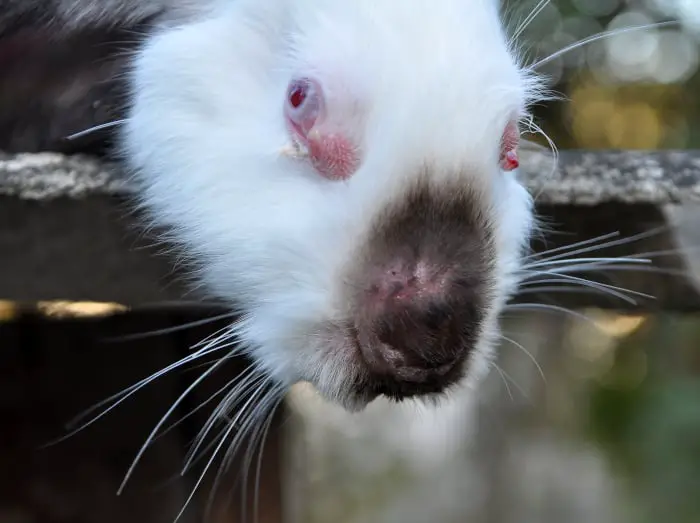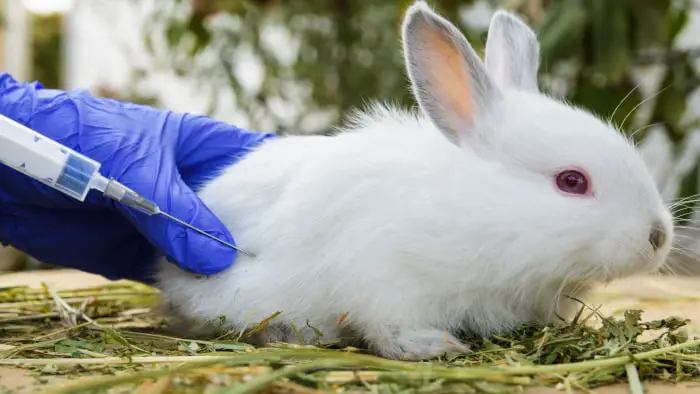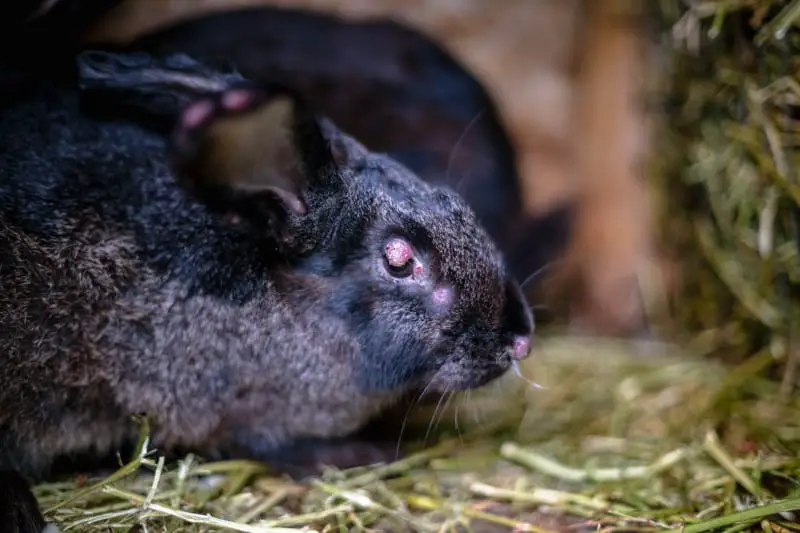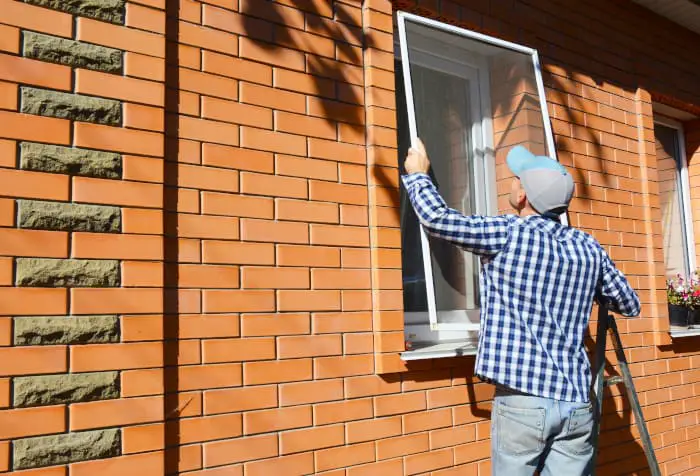If you are a rabbit owner, your bunny’s health is of paramount importance. You should know by now that rabbits are pretty strong pets. While rabbits may have various health conditions, there are some diseases that are more serious than others. Myxomatosis is one of those serious ailments that can affect your pet rabbit.
Myxomatosis is not a disease that you hear of too often. The disease does not affect rabbits everywhere in the world. However, as a pet rabbit owner, you should be aware of this condition since if contracted can have severe effects on your bunny.
Can pet rabbits contract Myxomatosis?
Yes, pet rabbits are particularly susceptible to myxomatosis, unfortunately they have no resistance to the disease. They do not have the natural immunity that wild rabbits have developed over the years.
What is myxomatosis?
The best place to start is always a definition. Myxomatosis is an illness caused by the Myxoma virus. There are two types of rabbits that carry the disease, brush rabbits and the tapeti rabbits. Both types are wild rabbits. The tapeti lives in both Central and South America and the brush bunnies are native to North America.
Unfortunately, this disease can infect pet rabbits and while wild rabbits may display mild symptoms, your domestic bunny may be gravely affected. Under the Health code of the World Organisation For Animal Health, the members of this organization are bound to report any case of myxomatosis.
How is myxomatosis transmitted?
The one good thing about this disease is that we know how it spreads. Blood-sucking insects are the main carriers of the disease, such as:
- Mosquitos
- Fleas (the rabbit flea is usually the main culprit)
- Lice
- Flies
Physical contact can on rare occasion also cause a transmission. Your pet rabbit may also be infected if he or she comes in contact with a contaminated surface.
Where did myxomatosis come from?
Most people do not know this bit of history. The Myxoma virus was intentionally created to control the rabbit populations in France, Chile and Australia. It was introduced in those countries in the 1950s but this virus quickly spread to other rabbit populations. New Zealand, Asia or South Africa have never recorded cases of myxomatosis.
What are the symptoms?
Rabbits who have contracted myxomatosis may exhibit a wide range of symptoms. If your pet rabbit starts to exhibit two or more of the following symptoms, you should get your pet rabbit to a veterinarian as soon as possible.


- Runny nose – A clear mucus flowing from your rabbit’s nose may be a sign of myxomatosis.
- Swelling – Myxomatosis is categorized by swelling. Your pet rabbit may experience painful puffiness in the following areas:
- Eyes – your rabbit may barely be able to open his or her eyes.
- Face
- Ears – may look red and inflamed and feel warm to the touch.
- Genitalia – both male and female.
- Milky eyes – Your rabbit’s eyes may look cloudy instead of their usual clear, shiny appearance. You may observe a white sticky discharge.
- Fever– A sick rabbit may feel hot to the touch.
- Laboured breathing – An affected bunny may pant or breath irregularly as if struggling to catch its breath.
- Lethargy – You should be concerned if that your bunny is not moving around as energetically as usual.
- Ulcers and scabbing – Painful bumps may appear on your rabbit’s face and on other parts of the body.
- Hypothermia- Your rabbit may start losing its body heat, faster than he can generate it.
Is myxomatosis fatal?
The answer is yes it can be fatal for pet rabbits. While a wild rabbit may show only mild symptoms or none at all, a pet rabbit will most likely not recover from myxomatosis. Wild rabbits often develop lumps called myxomas. Those who survive often have immunity from the myxoma virus after their encounter with the disease. However, if your pet rabbit is diagnosed with myxomatosis, you may have to consider palliative care. Sadly, your rabbit will most likely die within 14 days of contracting the disease. Often, your veterinarian will suggest euthanasia as the recommended approach. I understand this is hard to accept, but avoiding a long painful end to our rabbit can be our last gift to him.
Can Myxomatosis be treated?
Regrettably, there are no medications that can treat this disease. You can only offer supportive care in the form of the following:
- Fluids -To help with dehydration.
- Pain Medication – Since the disease often causes swelling, your bunny will be in a lot of the pain due to the large amounts of inflammation in its body. Pain management is crucial at this point.
- Antibiotics – With myxomatosis, your pet rabbit may develop secondary infections that you will have to address, and this is where the antibiotics come in.
What can I do to prevent my pet from contracting Myxomatosis?
As you can tell, rabbit owners should never take Myxomatosis lightly, and it is normal to try to protect our bunnies from this disease at all costs.

- Vaccination – As with most serious diseases, vaccines are available. There is a vaccine for myxomatosis. Unfortunately, this vaccine is not available in all countries. If you live in the United Kingdom, you can have your pet rabbit vaccinated. Unfortunately, this vaccine is not available in the United States or Australia. You may be disappointed that the vaccine is not widely available. However, there is a reason for this. There are concerns in the veterinarian community that the virus in the vaccine could spread to the wild rabbit population. This could spark an epidemic. The vaccine does not totally eliminate myxomatosis, but your bunny may experience milder symptoms. He or she is also more likely to recover from the disease if vaccinated, so if you have access to this vaccine you can inoculate your rabbit starting at the age of 6 weeks. Your pet rabbit will become immune within 14 days. The recommendation is that pet rabbits take the vaccine annually, and every month if living in an area where outbreaks of myxomatosis occur.
- Use flea treatment – You can consult your veterinarian for a safe flea preventative. These are usually prescription drugs. Even if you keep your rabbit indoors, he or she might still be at risk since fleas can come into the house on humans and other pets.
- Limit rabbit socializing – There are times that rabbits come together. Sometimes there are rabbit competitions and shows, please seriously reconsider attending these if there is a myxomatosis outbreak in your particular area. Also if there is an outbreak in your neighbourhood, it may be a good idea to not buy any rabbits from the pet store during this time. Animals at pet stores are particularly at risk because they are usually in close quarters. If any of the animals have fleas, it is likely to spread at the store.
- Control mosquitoes – If mosquitoes in your area are a challenge, you may want to try to do your part to minimize their spread.
Here are some tips for mosquito prevention
- Be aware of mosquito breeding grounds – Mosquitoes can lay eggs in any body of stagnant water like puddles, birdbaths, flowerpot saucers, ditches, old tyres, ponds, overgrown fields.
- Cut overgrown lawns and grasses – This will prevent water from settling in the grass.
- Cover all collected water – If you have a water tank, make sure mosquitoes cannot get into it. Cover barrels that collect rainwater on the outside.
- Keep your yard clean – If you have debris lying around your yard like old containers and old tyres. Remove any receptacle that collects water.
- Separate sick and potentially exposed rabbits – If you observe that your rabbits are getting sick, it is important for you to act quickly and separate them. Place the infected rabbit in a cage by himself and be very careful while handling him.
You should also place mosquito netting over the cage. Change your clothes and wash your hands thoroughly before handling food and supplies for your other rabbits and if you suspect that one of your rabbits has been exposed, quarantine him or her for a 14 day period for observation. You should also refrain from bringing any new bunnies into a home that has had a myxomatosis case for a period of four months. The virus can survive on surfaces for long periods. Pet owners should not take any chances.
Does Myxomatosis affect humans?
While the myxoma virus can be fatal for pet rabbits, you can breathe a sigh of relief, it does not affect humans. The virus can enter a human cell, but it cannot replicate itself within a human host. Myxomatosis is not a zoonotic disease it does not transmit from rabbits to humans.
Myxomatosis is definitely a disease that you should take seriously if you have pet rabbits. It has the potential to be fatal and as such, every precaution should be taken. Especially if you live in an area which is outbreak-prone. Thankfully, you can take steps to make sure your rabbit as safe as possible. And as always, take your bunnies to the veterinarian if they develop any of the aforementioned symptoms. It could be the difference between life and death for your precious pet.




